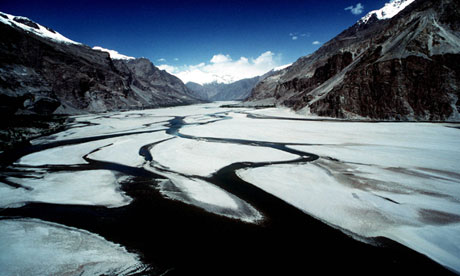The world is facing a global water crisis. This year, the World Economic Forum and world business leaders identified that water supply crises are amongst the highest impact risks facing the modern world.
As populations grow, and countries and societies modernise, the demand for water to produce food, energy and goods increases. The OECD estimates that by 2050 the world’s demand for water will grow by 55%. Competition between water users and nations demanding water resources is also predicted to radically escalate. While consumption patterns and the loss and waste of food represent a huge proportion of inefficient water use in production supply chains.
Despite these challenges, and the chilling fact that nearly half of Global 500 companies lack concrete water-related goals, the sharing of water is not a zero-sum game. Huge gains can be made by tapping into synergies and by better use of established techniques, such as improved water-use efficiency and improved governance. We need to create stronger incentives for managing water and exercise economic and policy instruments to achieve this aim.
Some 20 years ago in Dublin, the UN International Conference on Water and the Environment agreed that water should be recognised as an economic good. Past failure to recognise the economic value of water had led to wasteful and environmentally damaging uses of the resource.
But water is not just another commodity. It is both a public and a private good. It is a resource which produces local as well as global benefits and its availability varies, sometimes dramatically, in time and space. This unique and irreplaceable resource moves around our planet constantly with no regard for man-made borders. In order to ensure water use is efficient and equitable, water needs to be attributed with its true economic, environmental and social value.
About 50% of all available water is transboundary – water located in the rivers, lakes or groundwater systems of two or more countries – and cooperation over this water is often troublesome. Around two thirds of the world’s transboundary rivers lack agreements between the countries that share them. This situation, linked to political conflicts in many of the sharing regions, has meant that transboundary water has been presented as a reason for violent conflict and even war.
However, the water wars that were feared a decade ago have fortunately not materialised. Water is more often a source of cooperation, even in situations of political tension. India and Pakistan have worked together in the management of the Indus River despite fighting three wars during the last fifty years. Israelis and Palestinians also cooperate on water in spite of their political conflict, albeit not on equal terms.
There are a host of benefits derived from cooperation in transboundary regions: economic, environmental and social. Climate change adaptation and mitigation, flood and drought management are perhaps two of the most publicly recognisable benefits.
Yet many more are in reach. The management of ecosystem resources, production of food, generation of energy, and the supply of water to municipalities and cities are also accessible through cooperation. There is also a suite of less tangible benefits as a result of cooperation: trust building, avoided conflict, trade and the integration of markets within regions. If policy makers and businesses choose to only focus their efforts within their national borders, they fail to mitigate serious water risks or to generate a wider range of benefits.
Given the positive prospects made available through cooperation, regional challenges related to transboundary water require urgent attention. Businesses value regulatory certainty and owing to the significant absence of enforceable regulatory structures today, the onus is on public policy makers to create an enabling environment, and support innovative public private partnerships in this arena.
Three years ago, the UN General Assembly declared 2013 to be the International Year of Water Cooperation. At the World Water Week in Stockholm, we will attempt to address issues related to transboundary water and how to increase cross-sectoral, multi-national cooperation opportunities.
If the global community is to adequately address our shared water challenges and associated risks, cooperation is imperative. SIWI believes that by increasing the incentives for using water more wisely, it is possible to double global water productivity by 2030 – an important step towards the realisation of a water wise world.

Despite political tension between the two countries, India and Pakistan have cooperated over the Indus River.Â

